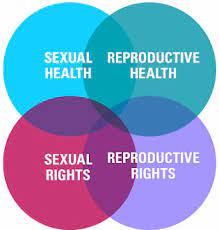By Bongiwe Dube
HIVOS that is currently funding CYDT`s ASRHR project launched an Age of Consent campaign that seeks to unpack and solve the age of consent confusion in Eastern and Southern Africa.
The campaign was launched through a virtual ZOOM meeting in which CYDT and other partners participated last week.
One of the meeting’s main presenters, Godfrey Dalitso Kangaude from Malawi revealed that local governments and stakeholders must come together to formulate clear age of consent policies and laws.
“The current laws and policies on age of consent are not clear. There are no clear standards and guidelines. The legal and policy framework is not explicit nor comprehensive. There are gaps, inconsistencies and contradicting statements in some of the existing SRHR laws and policies that must be reviewed,” he said.
Kangaude went on to say “standards and guidelines should be developed to facilitate implementation by health provides. Indicate clearly how to assess maturity for services to be provided. Provide clear guidance on what to do when a child, mature or not, does does not want involvement of parent or guardian for instance substitute consent.”
Kangaude also said that where guidelines are not clear, health providers use discretion, but their decisions tend to be influenced by personal values rather than the rights of the child.
A presentation on Age of Consent and ASRHR revealed that if laws do not provide for circumstances where an adolescent refuses parental involvement; it might simply mean no access to care. What laws and policies state or do not state explicitly might make it impossible for adolescents to access SRH care especially for the most vulnerable adolescents. Kangaude said “we continuously should ask ourselves the question; are we not creating more barriers for adolescents when we frame laws and policies in this manner?”
It is therefore necessary that the state enhances integration of child rights in laws and policies on access to SRH care, pro-actively engage the judiciary, involve adolescents in the formulation of laws and policies, health providers develop clear and concise guidelines and pre-service and in-service training protocols, parents engage in dialogue about adolescent SHR care to negotiate balancing their duties and the best interests of the child.
The presentation also highlighted on the need for advocacy to be about empowering as much as it is about reshaping the legal and policy landscape for instance raising awareness about the rights of adolescents to SRH care and encouraging parent-child dialogue about sex and sexuality.
The meeting provoked debate in Zimbabwe in which under Section 70 of the Criminal Code, the legal age of consent is 16 while the 2016 Zimbabwe constitutional court ruling demanded the government to increase the legal age of marriage to 18.
Setting the legal age of marriage high and reducing the age of consent contributed to the confusion surrounding the age of sexual consent, hence young people and stakeholders in Mat South are demanding the realignment of marriage and age of consent laws and policies in Zimbabwe.
Ends//


Recent Comments